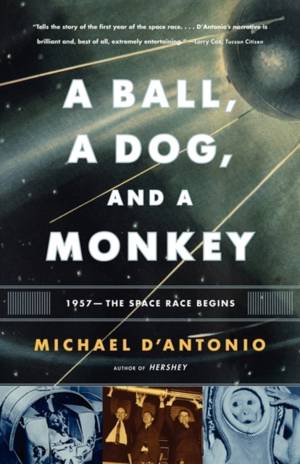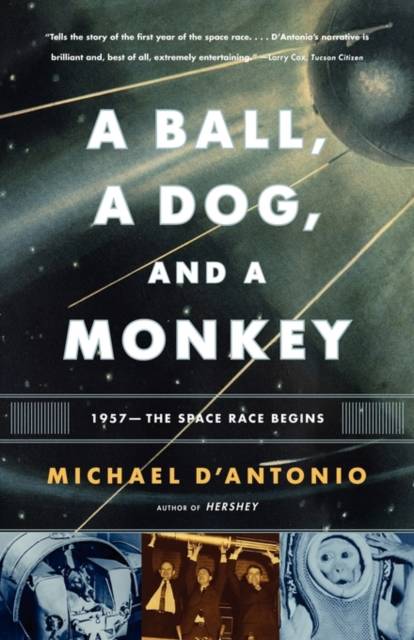
- Retrait gratuit dans votre magasin Club
- 7.000.000 titres dans notre catalogue
- Payer en toute sécurité
- Toujours un magasin près de chez vous
- Retrait gratuit dans votre magasin Club
- 7.000.000 titres dans notre catalogue
- Payer en toute sécurité
- Toujours un magasin près de chez vous
29,95 €
+ 59 points
Description
A Ball, a Dog, and a Monkey tells the remarkable story of America's first efforts to succeed in space, a time of exploding rockets, national space mania, Florida boomtowns, and interservice rivalries so fierce that President Dwight Eisenhower had to referee them. When the Soviet Union launched the first orbital satellite, Sputnik I, Americans panicked. The Soviets had nuclear weapons, the Cold War was underway, and now the USSR had taken the lead in the space race. Members of Congress and the press called for an all-out effort to launch a satellite into orbit. With dire warnings about national security in the news almost every day, the armed services saw space as the new military frontier. But President Eisenhower insisted that the space effort, which relied on military technology, be supervised by civilians so that the space race would be peaceful. The Navy's Vanguard program flopped, and the Army, led by ex-Nazi rocket scientist Wernher von Braun and a martinet general named J. Bruce Medaris (whom Eisenhower disliked), took over. Meanwhile, the Soviets put a dog inside the next Sputnik, and Americans grew more worried as the first animal in space whirled around the Earth. Throughout 1958 America went space crazy. UFO sightings spiked. Boys from Brooklyn to Burbank shot model rockets into the air. Space-themed beauty pageants became a national phenomenon. The news media flocked to the launchpads on the swampy Florida coast, and reporters reinvented themselves as space correspondents. And finally the Army's rocket program succeeded. Determined not to be outdone by the Russians, America's space scientists launched the first primate into space, a small monkey they nicknamed Old Reliable for his calm demeanor. And then at Christmastime, Eisenhower authorized the launch of a secret satellite with a surprise aboard. A Ball, a Dog, and a Monkey memorably recalls the infancy of the space race, a time when new technologies brought ominous danger but also gave us the ability to realize our dreams and reach for the stars.
Spécifications
Parties prenantes
- Auteur(s) :
- Editeur:
Contenu
- Nombre de pages :
- 320
- Langue:
- Anglais
Caractéristiques
- EAN:
- 9780743294324
- Date de parution :
- 30-09-08
- Format:
- Livre broché
- Format numérique:
- Trade paperback (VS)
- Dimensions :
- 140 mm x 216 mm
- Poids :
- 430 g







